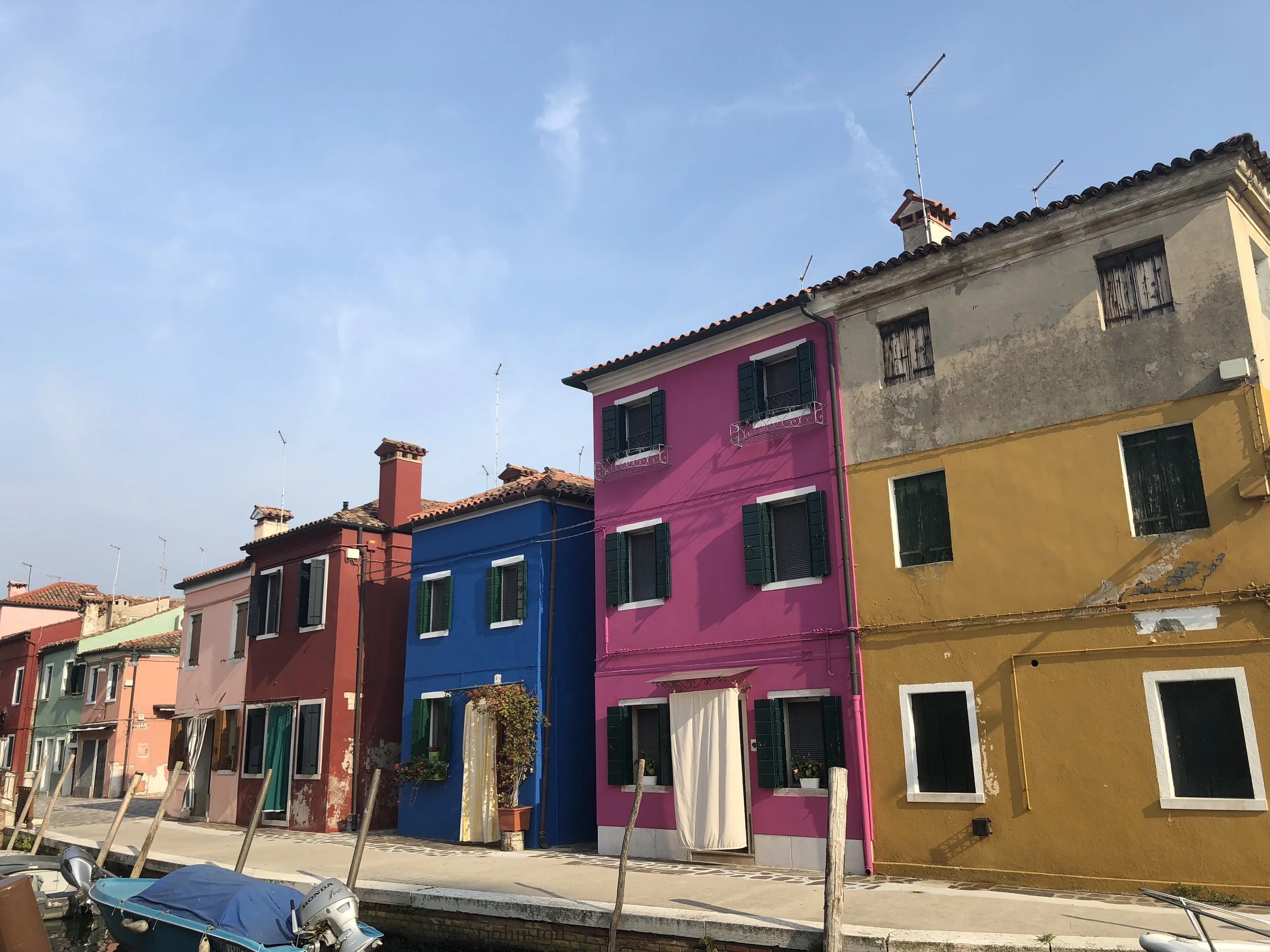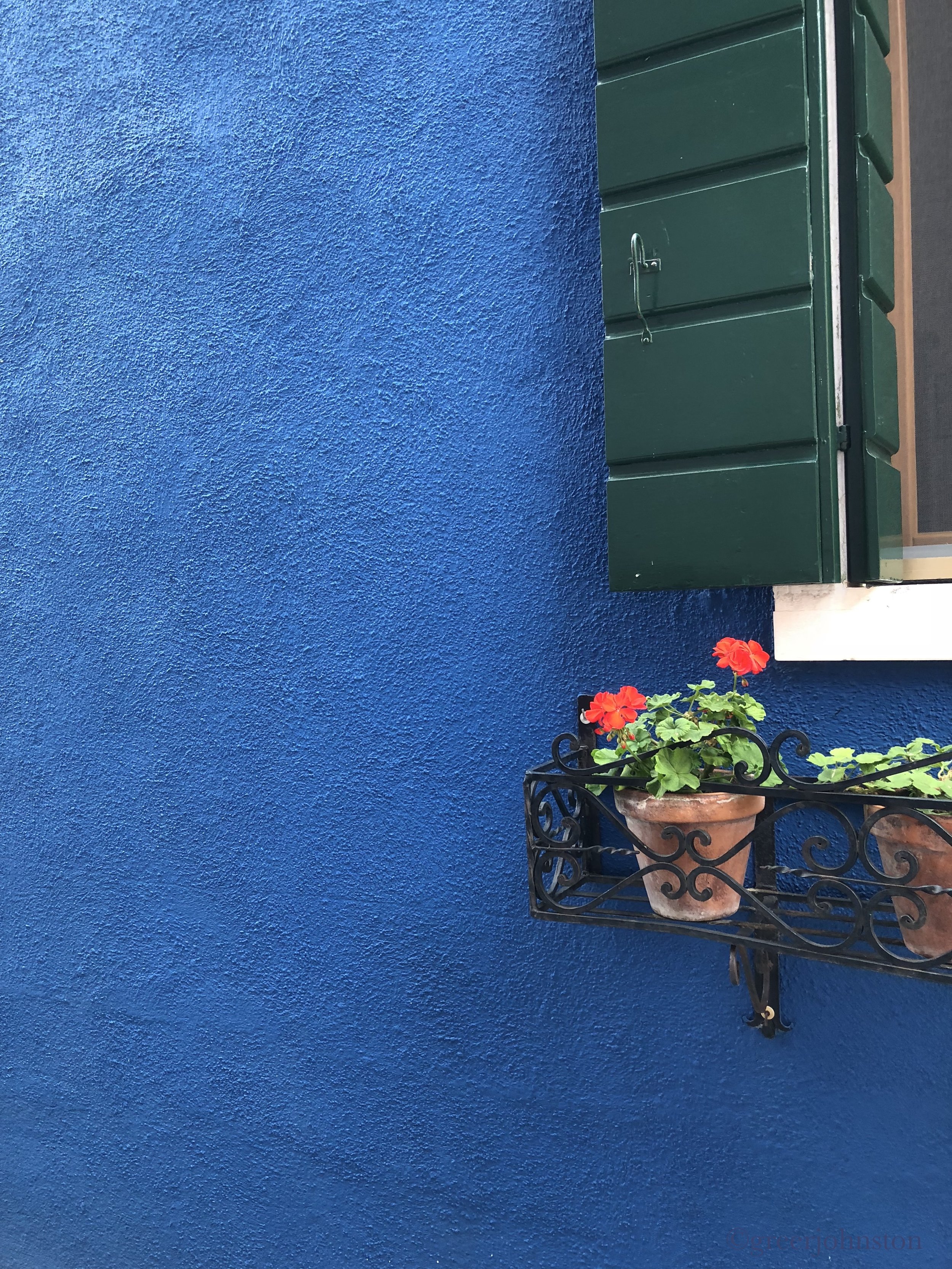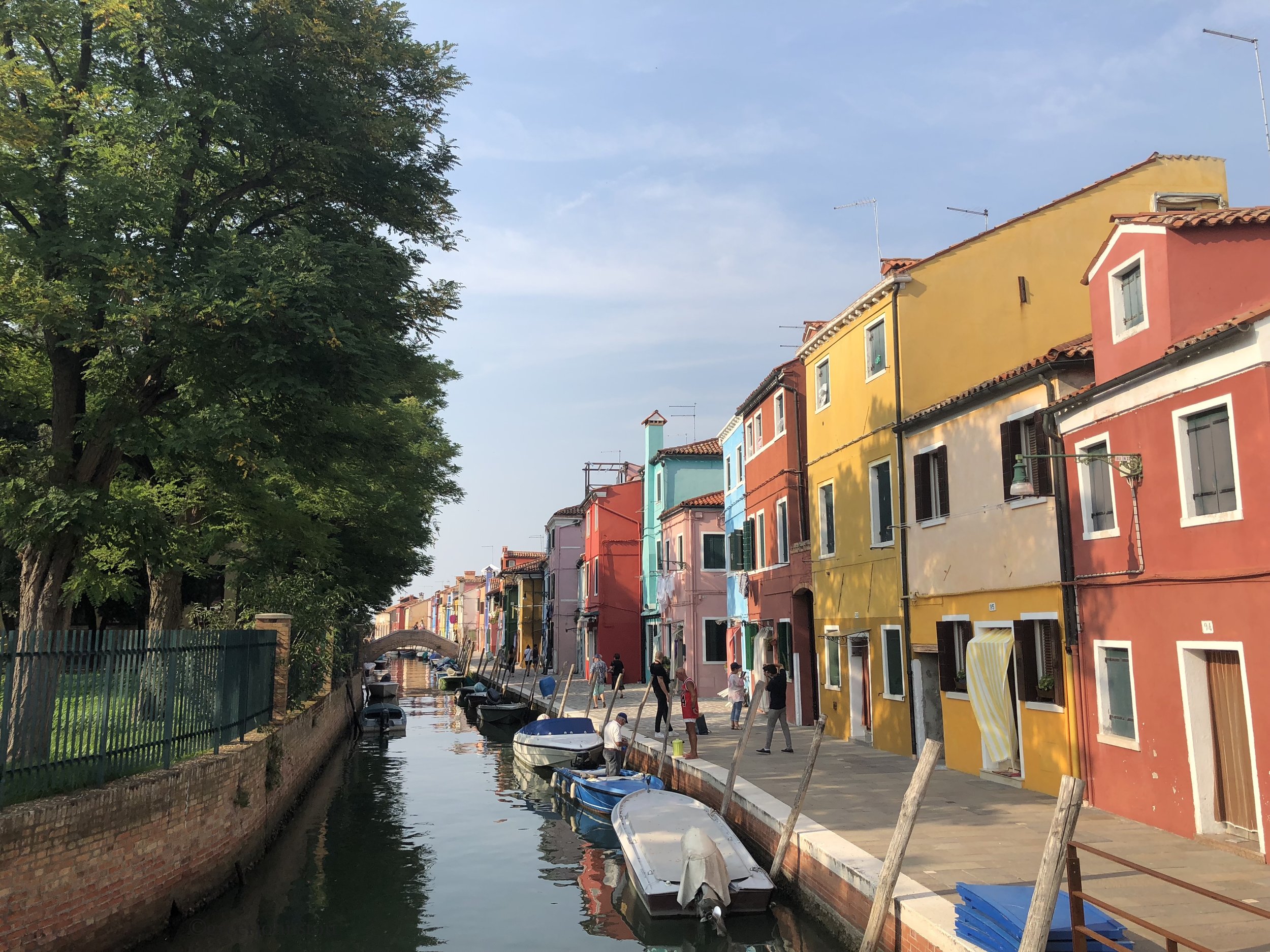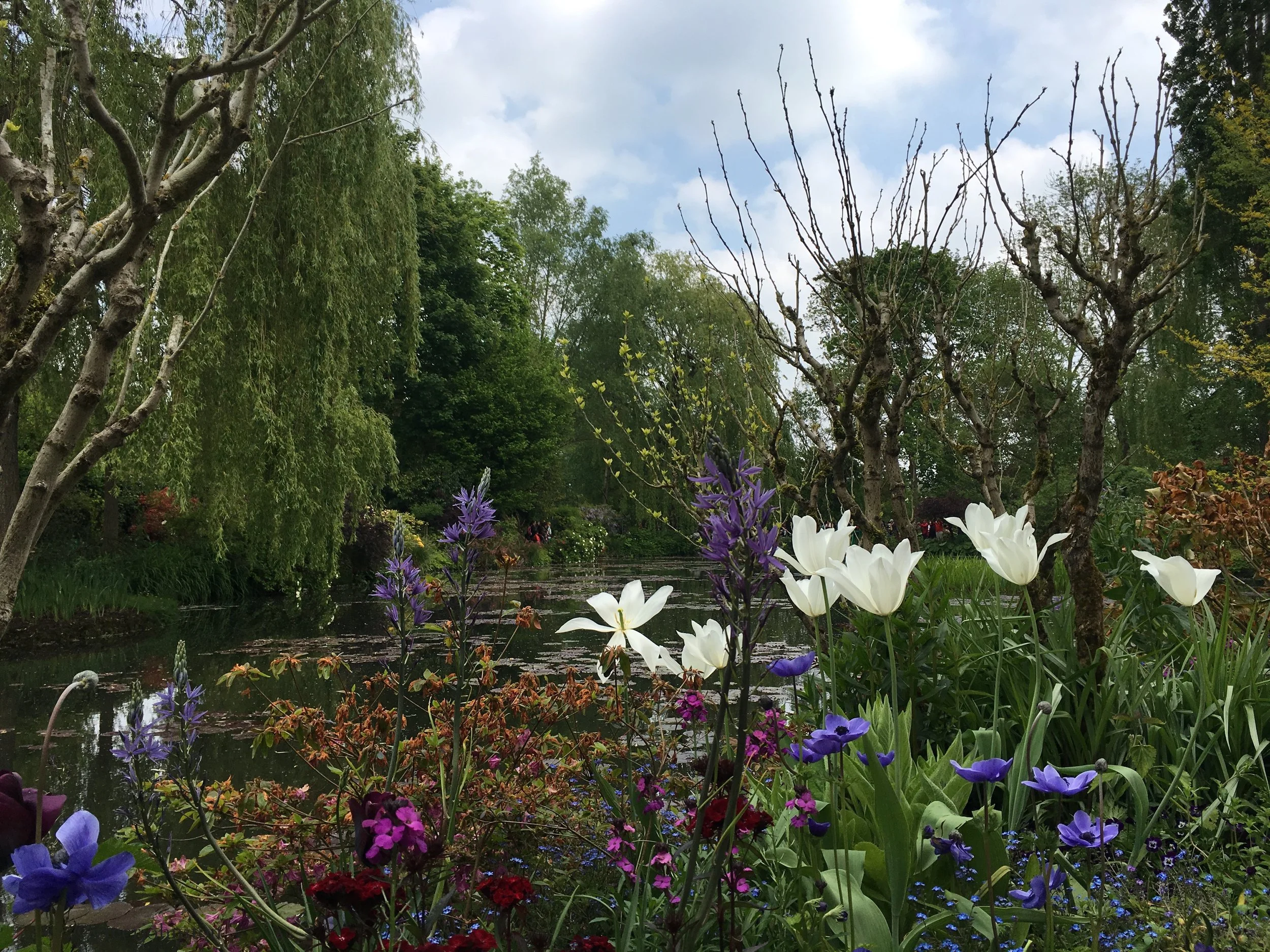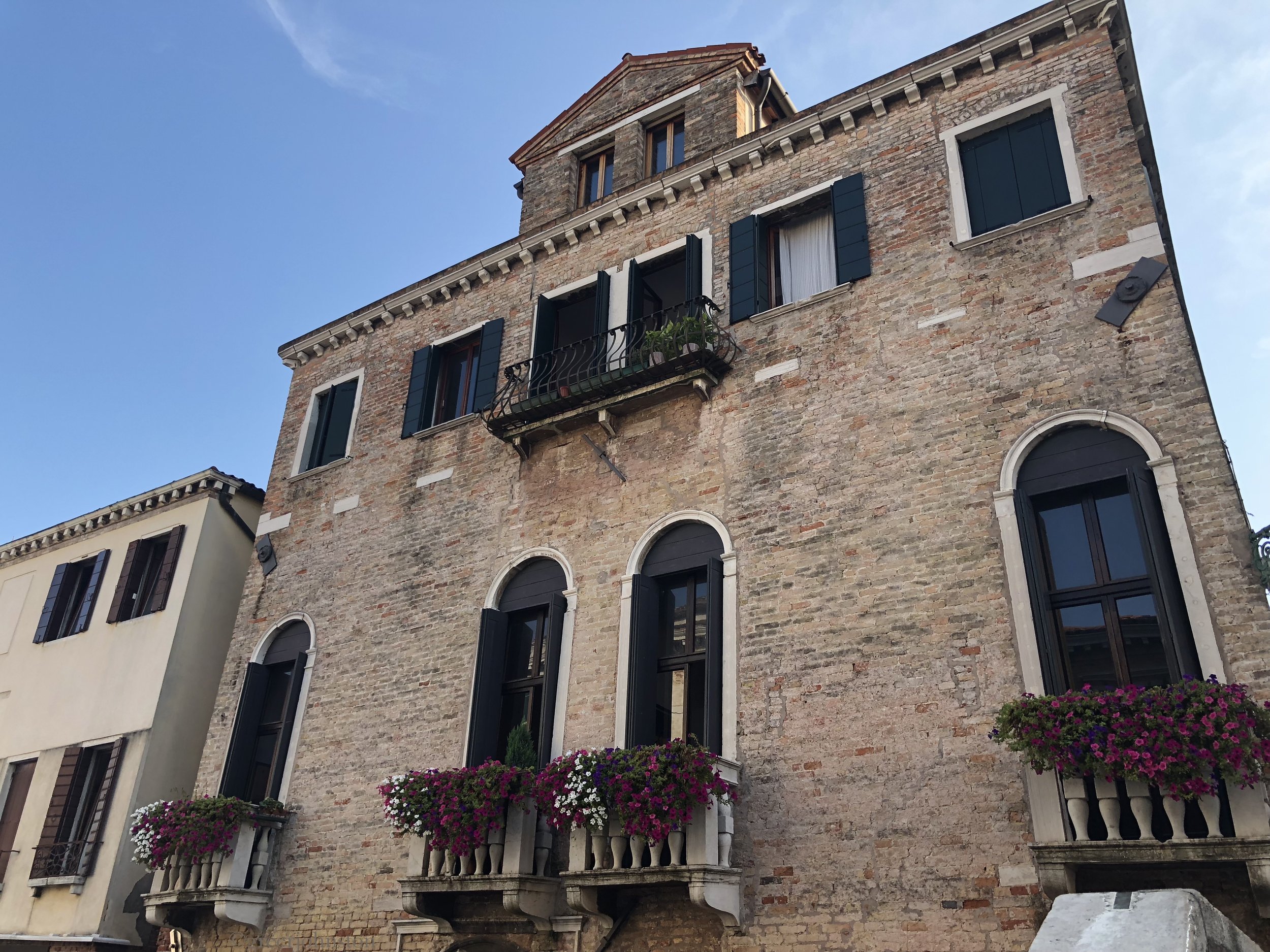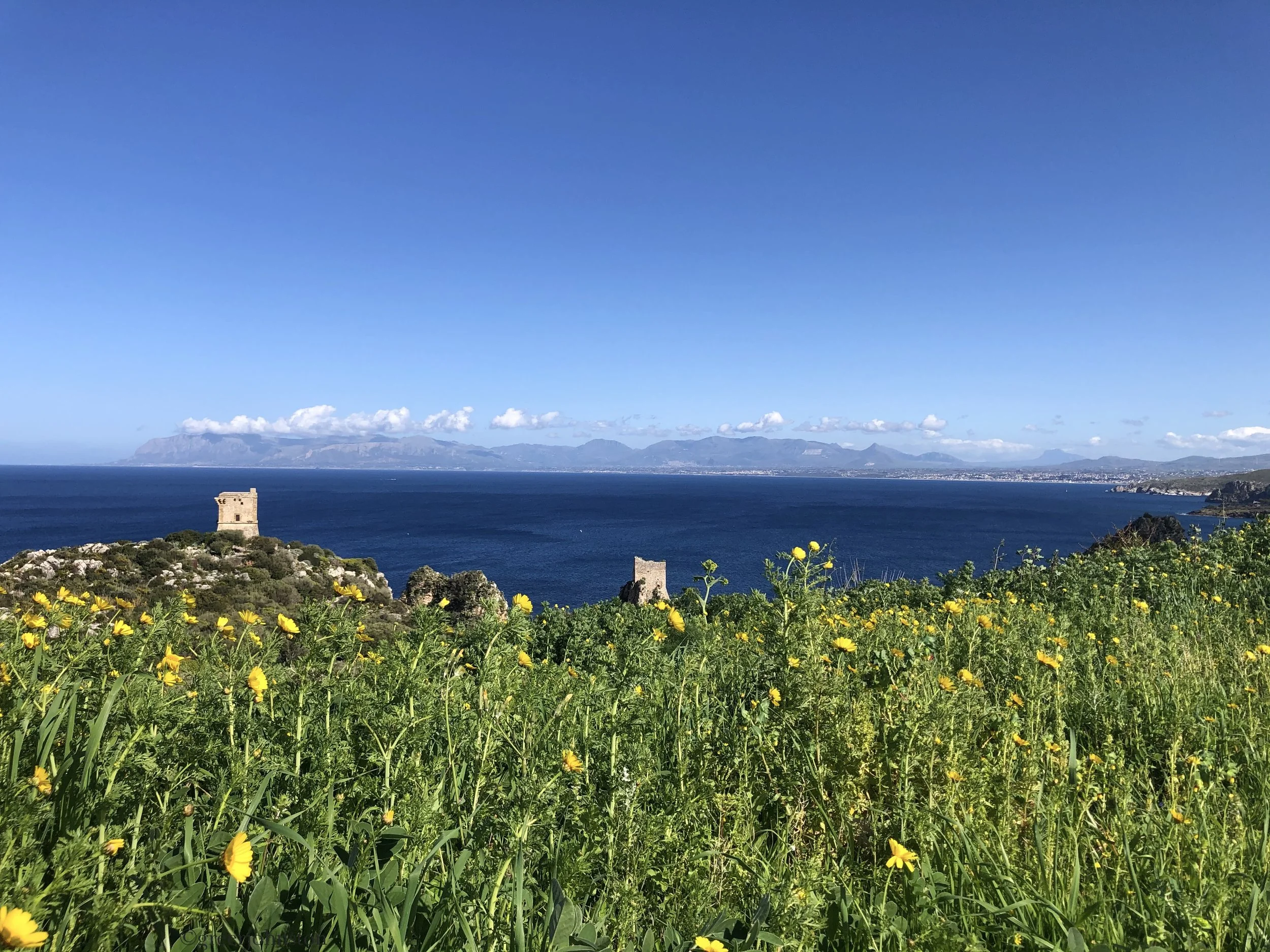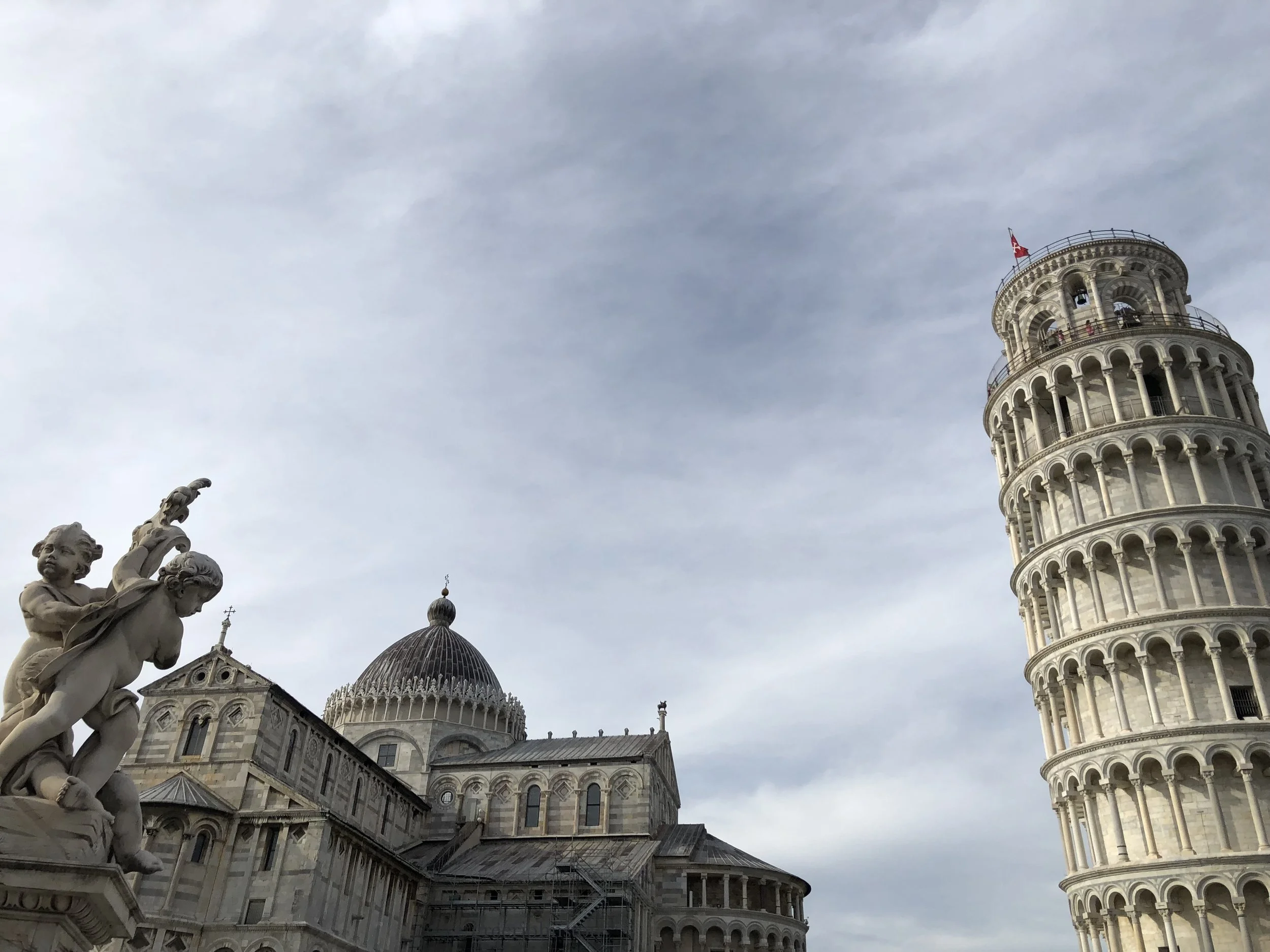Finding an Apartment in Italy
Hi everyone! Welcome to a very important article in the Moving to Italy series. Today’s topic is probably one of the most things to get off to a good start in Italy, and that is finding an apartment!
This is not only important for bureaucratic reasons - as you will see, you need to be informed of the requirements for obtaining your residenza and make sure the rental contract will be properly registered - but your home is so important for you quality of life and happiness as well, so I advise you to be aware of some red flags, be patient, and really be choosey.
If you would prefer to watch the video version where I discuss this topic, I have broken it down into two videos.
This first video explains the basic process of looking for an apartment, the importance of contracts, and also some red flags to look out for while you are apartment hunting.
This second video includes some things that may surprise you about your apartment and some things that may be different to apartments that you have lived in before.
When I first I set out to make these videos, I thought they would just be about the process of looking for an apartment, which I will explain below, but it also had me thinking about my own experiences looking for an apartment, living in an apartment, and all of the things that I wish I would have known sooner, especially the red flags to look out for.
Like any new experience, I feel like there is a big learning curve when you are renting an apartment in any country for the first time. The norms and expectations will be different, the technical and legal procedures will be different, and if you aren’t aware of these things up front, it can really put you at a disadvantage and at a higher risk of being taken advantage of.
Looking for an apartment in Italy
Okay, so first let’s begin with actually how to look for an apartment in Italy.
The first thing I would highly advise you is to wait until you are actually in Italy before you rent an apartment. Of course you can begin to look online before you get here, but online pictures can be very deceiving and all in all it’s just best to be here, to see the place in person, walk around the neighborhood, and get a feel for the landlord before I would sign any documents.
As I mentioned, the first place to look for apartments would be online. There are several websites that list apartments across Italy – such as Idealista and Immobiliare. You can also go on facebook where you can look for groups in your city with listings. They will say something like “Casa e affitto a Bologna,” for example. You could also look to join the local “expats group” which could also help point you in a good direction. Once you are actually in Italy, another good way to look for an apartment is to just go walking around neighborhoods you like, you will see signs that say affitto, meaning rent, and it will have some basic information about the apartment and the phone number of the person renting it.
I would definitely start looking online so that you can get an idea of the average prices for the different neighborhoods you are looking at, and get an idea of what kinds of places are out there. However, as everyone has advised me whenever I am looking for a new apartment, you really do have to go see the apartments in person, and you will probably need to see a lot of them before you find one that is suitable. Like I said, photos online do not usually paint the whole picture, and this can work both ways. Sometimes, a place that looks really cute online might actually end up being so tiny a mouse could live there, while a place that looks really dim online turns out to be a bright, open space. So you really do have to get out there and look.
Different kinds of apartments in Italy
The first thing that you’ll be looking for is what kind of apartment you would like. Depending on your lifestyle, I would consider first renting a room inside a shared apartment. This could be a great way to begin meeting people in a new city, but also it takes some of the pressure off of you. I have found a lot of learning curves in renting apartments here and honestly after three or four apartments I still am. It could be really helpful to have other people and experiences to learn from and to share the responsibilities with.
If instead you are looking for yourself, you will probably look for a monolocale or bilocale. A monolocale is a one-room or studio apartment, so the kitchen, bedroom and maybe a seating area will all be in one space with a separate bathroom. A bilocale means a two-room apartment, and basically will have a bedroom separate from the kitchen/living area and bathroom.
Also take a look if the apartment is arredato, or furnished or non arredato. Non arredato means there is nothing in the apartment, and I mean nothing. No kitchen sink, no refrigerator, no washing machine and certainly no furniature. This, for example, has never been an option for me, since I am just renting and I never know for how long, I’ve always wanted all of the appliances there and working. Double check what appliances are included. Maybe an oven you don’t need, but I would not consider renting an apartment without a washing machine. If something is missing, you can also always ask prospective landlords if they would consider getting the appliance. You might also see a semi arredato option, but always check which furniture and appliances are coming with the apartment. Also, be sure to check the appliances when you move in, and make sure if something is not working you tell the landlord ASAP.
What do you need in your Italian apartment?
Something I would definitely take into consideration is if there is an outdoor space. This is something that for me is really important, as apartments can be really small. I always need to have at least a balcony where I could get some fresh air. Also consider that you’ll (most likely) need to dry your laundry outside somewhere. There may already be lines strung up outside the window or off of the balcony, but if there isn’t you’ll need to use your balcony to place the laundry hanger.
You might not think about this initially, but see if the apartment has an elevator, an ascensore. They may be harder to find, but you should be realistic about your needs and your desire and ability to walk up multiple flights of floors every day. I have lived up many flights of stairs, but really struggled for example when I had done a large grocery shop or was traveling and needed to get multiple heavy suitcases up and down the stairs. My advice here is to be really honest with yourself and ask yourself if you would be able to manage by yourself if need be. If not, then look for something on a lower floor or for a building with an elevator.
If you are someone who gets frequent packages, you may also need to be realistic about finding an apartment with a portiere, or a doorman. Package delivery in Italy can be extremely fickle, and you often get one chance to be at home to have your item delivered. If your building does have a door man, and even if it doesn’t, you may still noticed a condominio fee listed with the rent. This goes towards random expenses of the building.
What additional fees do you pay for an Italian apartment?
There are other extra fees that you should ask about so you can get an idea of your expenses in addition to the rent. First, you will almost always be asked to put down at least one month of rent as a security deposit. I will give you a word of warning to be very attentive to the conditions in your contract to get it back. It could be that your landlord would like written, certified notice months ahead of time in order for your deposit to be returned to you. While many people have told me this is just a formality, and that provided that you didn’t damage the apartment you should absolutely get your deposit back before handing them the keys and moving out, depending on your relationship with your landlord it could become contentious. You could ask them if they would adjust the contract to, for example, be one month’s notice, which is much more realistic. The reason notice comes into play, as I will explain later, is that many rental contracts in Italy are for multiple years, so it is absolutely necessary that you have this clause to end the contract early. The general practice for recouping your deposit is just to not pay the last month’s rent when you decide to move out.
The next bill would be your electric bill, commonly called the bolletta or luce. This is usually the light bill but could also be gas, unless your building is only electric, or you use a gas tank. I have always had a gas tank which is a very economic option. Called a bombola, you can purchase these gas tanks as needed, usually they last me a few months and only cost around 30€. What option you will find in your place is decided by the building and by the appliances already in your apartment. As for the light bill, it usually comes every two months. If you have your own apartment, then you should have your own light bill. Some landlords who own the whole building may have just have one account for the building, in which each apartment has their own meter. In theory, this type of arrangement could work, but I think it really depends on your landlord and the neighbors you share the bill with. Ultimately someone will become responsible for calculating and collecting money, and if one neighbor is uncooperative it can be a real struggle. So that is kind of a red flag I would look out for, also because I think it is a kind of grey area in really be allowed. When looking at apartments I would definitely ask about the arrangements, and you can also ask to see previous bills from the current tenants to get an idea of the average cost.
Many landlords, especially for shorter rental periods, will not bother changing the water bill over to your name, or again will just have one account for the whole building. Some landlords will just “include” the water bill in the price of rent, or will have you calculate based on your consumption which you have a little meter, the contatore, from which you can calculate your share. After once calculating my water consumption I can tell you that it was really inexpensive, so I wouldn’t let some landlord try to act like they are doing you a huge favor by giving you a deal and including the water in the rent.
What Italian landlords want from you
When you go to rent a house, be prepared that whoever you will speak to will most likely ask you where you are from and what you do for a living. Legally, they should not be allowed to, but in my own experience and from that of my friends, it is also very possible that they will tell you that they do not rent to foreigners. Even when I tell them I am Italian, I’ve lived here for years, they will still tell me no. It can be very shocking, so I just want to prepare you for that. I always say that I would rather not live somewhere with someone like that as my landlord, but it can still be very hurtful, and very tiring to hear. They will also ask you about what you do, so it’s always better if you have a job and can show proof of your income, or your pay slip, the busta paga. The situation is a little more leinient for students who are renting rooms, especially because it is a lower cost, less responsibility, and generally a short-term contract.
Italian Rental Contracts
As I mentioned before, contracts for entire apartments are generally long-term. You can find 4+4, quattro più quattro, 3+2, tre più due or for one year, un anno. This means that the initial contract period is 4, 3 or 1 year respectively, and then if neither party decides to cancel it, will automatically renew for another 4 years, 2 years, or one year in the case of the one year contract. Now you see why you need to make sure there is a clause to cancel the contract on one month’s notice.
The reason the contracts are like this is that it costs money and is a hassle to make and register the contracts. They may the contracts longer since, with the cancellation clause, you can cancel them whenever you like, but then if you do end up staying a few years it saves them time and money to not have to make contracts every year.
Whether you have a contract for a few years or a few months, for example in the case of students, your contract should be registered with the Italian Tax Agency, the Agenzia Entrate. This is very important if you are planning on staying in Italy. For example, if you are moving to Italy on a student or work visa, you will need this receipt for your permit to stay, your permesso di soggiorno. And it is also important if you will be moving to Italy, because you will need this receipt of registration to apply for residenza, which I will explain in my next article. Residenza is essential if you will be living in Italy for you to have access to all the city and national services. Unfornuately, you may find landlords who are unwilling to register their contracts, meaning that they are renting off the book. In that case, do not rent from them. It means that the apartment is not registered, and they are not paying taxes on the apartment. You will not be able to register as a resident in the city and have access to city services. If you are already living in the apartment and find out that they did not register your contract, as once happened to me, then you need to tell them sternly that the option is either you will be leaving to find another place to live, or you would be forced to file a denuncia, a report with the police, which might convince them to head right on over to the tax office and file the paperwork. You will know the contract has been registered because they should provide you with the receipt of registration. Don’t let more than a week or two go by after moving in to see this receipt.
Dealing with Landlords
This topic leads me to talk about dealing with landlords here. Writing this article has actually given me some kind of purpose for why I had some negative experiences, because at least maybe I can save someone else the trouble of what I went through. Really, I’ve had some tough luck with landlords so I would highly recommend doing a vibe check of the people you are meeting with, whether that is a realtor or a property manager or the landlord’s second cousin who helps her out with these kind of things. If something seems fishy, that’s because it is, period. Also make sure you meet with the landlord themselves, because the nice person they sent to show you around can very easily disappear as soon as you’ve signed the contract. Also, keep in mind that if there is a realtor involved, they will take an additional month’s rent as their fee in addition to the deposit and the actual first month’s rent.
I really hate to say this, but it has been my experience and that of many people I know that landlords often try to take advantage of people. This is not just of foreigners, I have Italian friends who also have issues with their landlords, but in general newcomers to Italy know less about the way things are done here and the rights tenants have, which are actually a lot. I have heard many stories and random requests for money come out of my previous landlords’ mouths that turned out to be wildly untrue, but I am not used to people lying to my face so I really didn’t have any reason not to believe them. All this is to say: do your research. You can find the answers to many questions you have online, with the legal codes referenced to back you up. You have to be very strong-willed, hold your ground and know your rights.
How are the floors called in Italy?
One things to mention when you are looking for an apartment is the floors in Italy are counted differently than they are in the US, for example. So in Italy, the first floor of a building is called the ground floor, or the piano terra. Then what Americans would think of as the second floor is really the first floor, primo piano, and so on.
You may also see a piano rialtzato,which is kind of like the ground floor, but it is seated a little higher off of the ground. Ultimo piano means it is the highest floor of the building, or the “last floor.” I would say as a general rule of thumb to just be wary of ground floor apartments: they are usually less expensive, but that could come with some tradeoffs.
Mold
I will say that every apartment I have lived in here has gotten mold, usually showing up during the winter when it rains a lot and is very damp for weeks a time. I am not sure if it is the building material, but the apartments can become very humid inside and unfortunately there is not much to do but wait until spring and summer, and after that I have always moved. Unfortunately, this is something that you won’t usually find out you have until winter comes, although if you see mold when you view the apartment then you can cross it off your list. The only thing to do is let your landlord know when you first see it – they will either send someone right away to first treat the mold and then repaint your walls or they won’t really care, but either way is it 100% their responsibility. If they won’t take care of it then you should consider moving, because this is something that could be dangerous for your health and is not something to wait around on. If you go to the hardware stores here you will find plenty of products for cleaning the mold, so you know this is a common problem, but that doesn’t mean you should take it any less seriously.
My best advice: be choosey
Your home should be your sanctuary
I want to add one thing as a final closing note. There are a lot of things to look out for when you are looking for an apartment, and there are also many more people looking for apartments than there are advertised places to live. I know what it is like to be very tired of looking for apartments, very tired of being rejected from apartments for one reason for another, and really feeling like you are never going to find a decent place to live. But I would advise you against taking a place that you have doubts about just because you’re getting desperate. Every time I have done so it has totally come back to haunt me. I think it’s worth staying in an b&b for another month and really looking for a place you’ll be comfortable in rather than taking an apartment that you have an iffy feeling about. Trust me, you’ll be even more desperate to find a new place six months from now when you’re living in a nightmare, and it will be even worse because you have to stay in that nightmare situation in the meantime.
Like I said, I am still learning all the ins and outs of finding a place to live here. In general, the market for buying an apartment is where the quality is, but obviously that is not what you may be looking for at this time. I hope my experiences have at least been able to provide you will some advice and particularly with some red flags to look out for. Honestly, none of these things I could have ever expected. Some of it I believe was just bad luck on my part, but after having a few of these experiences, I think you really have to be as selective as possible and cross your fingers.
Now, I would like to just add some things that may surprise you about your Italian apartment, and some other things to keep an eye out for while you are house hunting.
How to heat and cool your house
I think one of the first things that is going to be a surprise to people renting their first apartment in Italy is the heating and cooling situation. This may apply more to apartments here in Sicily where the weather is more mild, but it is not at all uncommon for apartments to lack a main heating and cooling function. What you may not be able to tell ahead of time is whether or not this will be a problem. I have stayed in some apartments where there was a heating and cooling unit that I barely used, and then on the other hand had an apartment that was basically an oven in the summer and a freezer in the winter and didn’t have any heating or cooling option. Since I’m not an architect, I still don’t really know the best way to understand if this will be a problem just by looking at an apartment, but you definitely need to look at the quality of the apartment construction and how good of shape it is in.
Many apartments will now have at least what is known as a condizinatore, which is basically this small heating and cooling unit. Again, I have had a few experiences with these – in some homes you can feel the difference pretty quickly and in others where you can leave it on for hours and not really feel a difference. Newer ones seem to work better and hopefully be more energy efficient, however the size of the space and quality of building materials of the home also plays a role. One thing that we will talk about later is the cost of electricity, and using a condizinatore or space heaters can definitely increase your electricity bill, but obviously you also need to be comfortable in your house.
If by chance there is central heating in your apartment, you should ask the landlord if you have control over when to turn it on. It could be that it is only able to be turned on during certain hours of the day for the whole building.
You will also probably find that in your apartment you have your own water heater. In order to save energy and money on your electricity bill, it is absolutely a common practice, especially for single people or people without kids, to only turn on the water heater when you are going to need hot water, like to take a shower or do laundry, and generally only in the evening. Again, this all goes back to the fact that leaving the water heater on all day can really add up on your electricity bill, and since it only takes 30 mins or an hour for the water to heat up, it’s not that big of a deal to only use it when necessary.
You will have to check with your electric company, but usually they have different prices of energy during different hours of the day, and usually it is cheapest to use the electricity in the evenings. I was really shocked to learn this at first but it’s true. Many people only do laundry or run other appliances in the evening.
The bombola
The next thing that may be a surprise to you is using a gas stove, or more specifically, having the gas tank be in your house. I personally had never experienced either, but I eventually got the hang of it. The gas tank is called a bombola, and depending on how often you cook they can last you a few months. The only thing about the bombola is that you never know when it is going to finish, so if you are in the middle of cooking dinner then you might have to go out for pizza instead. Luckily mine have always finished during the day, so I just had to call the local delivery guy who actually will bring you a new bombola, set it up, and take away the old one.
Internet
One thing that is really surprising is that in Italy cellphone plans are relatively inexpensive compared to the US. If you are a new customer, you can have unlimited internet for around 10 to 15 euros per month. The reason I mention this is that while fiber internet is also relatively inexpensive compared to the US, you might be able to skip it altogether and just use your cellphone as a hot spot (if you have unlimited internet). Of course, don’t take my word for it, look at the fine print to make sure you really can, but this could be a good option and save you some money and hassle of setting up internet. If you really need internet for remote work or gaming or maybe a more secure connection, then you might need to get wifi though. It may also be a good idea if your cellular connection is weak inside your house.
Maintenance on your apartment
When it comes to maintenance on your apartment, your landlord generally will have a roster of handymen, electricians and plumbers who they prefer to work with, so you can call your landlord to see how to proceed. I asked one of the handymen from my old apartment to explain to me how to know when a problem was my responsibility, and when it was the landlords. This is important because some landlords will assume you don’t know, and may try to get you to pay for things that are absolutely not your responsibility. In the contract, it is usually defined that “normal maintenance” is your responsibility, while “exceptional maintenance is that of the landlord.” This guy told me that, for example, if it is something internal, like inside the pipes, then it is usually the landlord’s responsibility, but if it is outside, then it could be my responsibility. Usually this pans out, because you can only really damage something outside of the walls, but I will also file this topic under landlord personality. If your landlord is a reasonable person who follows the rules and honors the contract, then there should not be any issues. If the fridge that was there when you rented the apartment stops working because it’s twenty years old, they will gladly make sure you get a working fridge as soon as possible. However, if you have a landlord who thinks they are really clever and can take you for a ride, they may just ask you for a “contribution” to replacing the building’s water motor, for example, which is a exceptional expense that has nothing to do with you, and is just an excuse for them to get a little bonus.
Using too many appliances
One more thing about the electricity. I have no idea why this is, and it doesn’t happen in every house, but it could be that if you do use too many appliances at the same time, I think its something like the circuits overloading and you might notice your lights dim or the power just completely goes out and you have to reset them (this is the non-technical definition). Of course, if your house does have this problem, then you need to be careful, because since you are more likely to turn on everything in the evening when the electricity is less expensive, it could become too stressful for your electric system.
Can you drink the water in Italy?
Another thing that you may not think of is the water in your house. Now I don’t know if there is really a reason not to, but no where I have visited or lived in Italy have I drank the tap water. This is of course going to vary by where you live in Italy, but check around to see what other people in your community do. Many people I know just buy water, really. They buy big packs of two liter bottles of water. Here this is very common, and you can even have them delivered to your house from the supermarket. This for me is not an option because I just can’t be bothered and it really bothers me to use so much plastic. Instead I just use a Brita, which seems to work fine for me, I also know people who have installed filters on their sink, but maybe that is more of an investment to consider when you are living in a place long-term. This is just my experience. I am only talking about drinking water. I use the tap water to cook, to clean, and to shower; it’s only to drink that I don’t use it. Just ask your Italian neighbors when you move in what they do
Hot water
Speaking of the water, when it comes to having hot water one thing that you may not expect is that the water heater could be very small, especially in a studio apartment. I’ve had really small water heaters, that were basically the size of a microwave and has hot water that lasts about five minutes. If it’s a little big larger, you should be okay, but its definitely not the same as having a water heater boiler at home. Just one more thing to keep an eye out for when you are looking at apartments.
So that is all of my advice, for now. I think it is enough to get a good idea of the situation and to prepare yourself for possible scenarios. These are all of the things that over the years I have learned to look out for.
For more articles about moving to Italy, you can check out the Moving to Italy series here!
Note: The pictures featured in this article are from the colorful island of Burano.

